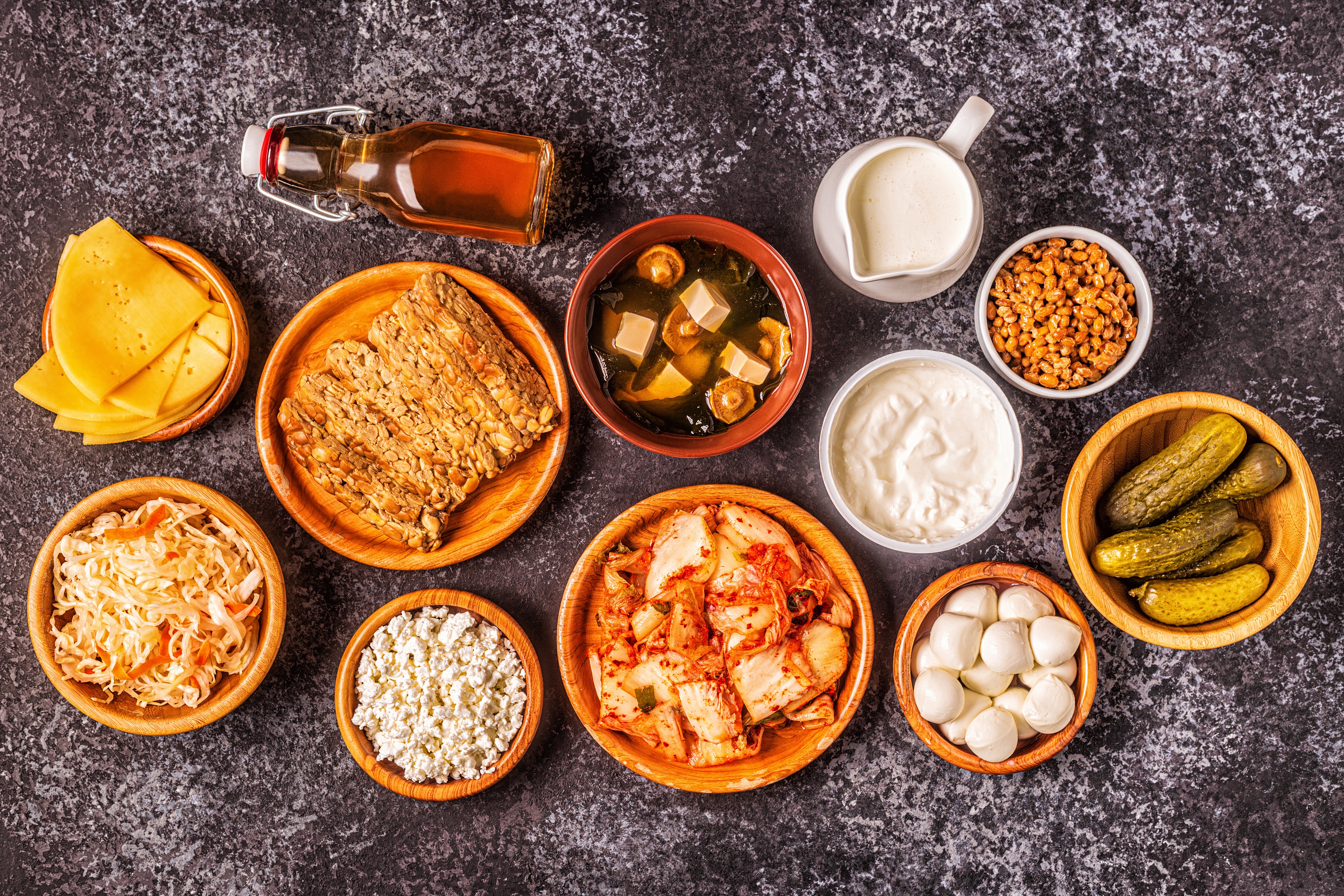In light of the global pandemic and rising cases of infectious diseases, we want to make sure that our children are well protected. One of the critical things we should consider to boost their immunity is to ensure they are getting the right amounts of vitamins. So, what are the best vitamins for children's immune systems of all the nutrients on the list?
It is noteworthy to remember that vitamins C, A, D, E, and B6 can help boost your child's immune system. As long as there is variety in your child's diet, these are met from many natural sources. If your child is a picky eater or has a medical condition affecting nutrient intake, you may consult a pediatrician for the right vitamin supplement.
In this article, you will better understand a child's needs when it comes to boosting their immune system. Then, we will narrow down the best vitamins for children's immune systems and where to find them. Lastly, we will provide tips on how to improve your child's immunity.
Children and the Immune System
The immune system is what helps a child fight off foreign invaders that may be harmful to the body, such as bacteria, viruses, and toxins. It is divided into two parts: the innate immune system and the acquired immune system.
Innate Immune System
The innate immune system acts as the first line of defense. The skin, the cornea, and the membranes lining up the different body tracts act as a barrier that helps protect a child from perceived invaders.
The innate immune system is already activated at birth and comprises phagocytes - the invader-fighting cells.
Acquired Immune System
The acquired immune system works hand in hand with the innate system in protecting a child from serious infections. Upon exposure to harmful invaders, the B lymphocyte cells form antibodies that help eliminate specific substances from the body.
This way, the body will recognize once a child gets re-exposed to the same foreign substance signaling the antibodies to fight them off.
What Are The Best Vitamins For Children's Immune System?

How can you be at ease knowing your child spends much time playing outdoors or interacting with other people inside a classroom? How do you make sure that they get the extra protection they need?
Here are the vitamins that can boost your child's immune system.
Vitamin C
This vitamin is also known as ascorbic acid. As it cannot be produced by the human body, it is deemed an essential nutrient. Vitamin C plays a number of roles in bodily processes.
Vitamin C can help strengthen your child's innate immune system and protect them from the harm of free radicals.
Aside from collagen production and protein metabolism, this vitamin is best known for its antioxidative and immune system-boosting properties.
The Recommended Dietary Allowance (RDA) for Vitamin C varies per age and gender. As children are at their most vulnerable, they need to get an adequate amount.
Vitamin A
This fat-soluble vitamin is found as retinol in animal food sources and as carotenoids in plant sources. It has three active forms in the human body: retinol, retinal, and retinoic acid.
Vitamin A plays a significant role in the growth and development of children. It is also involved in the promotion of a healthy vision and strong immune system.
Furthermore, vitamin A deficiency may cause night blindness and dry eyes. In severe cases, it may lead to total blindness. Children who do not get enough Vitamin A are also at risk for contracting infections.
Depending on the age, children are recommended to have a Vitamin A intake of 300-600 μg/day in order to support their needs.
Learn more about The Most Important Vitamins for Your Children's Eye Health
Vitamin D
This vitamin is another nutrient that protects children from infections. Aside from maintaining strong bones, Vitamin D also plays a role in keeping a healthy immune system.
Health research suggests a strong link between Vitamin D and a boost in the immune system of young children.
Adequate exposure to sunlight will make sure your child gets their daily needs. Vitamin D (in the form of cholecalciferol) is produced by the body as ultraviolet B rays hit the skin.
A deficiency of this vitamin may predispose children to autoimmune diseases such as type 1 diabetes, multiple sclerosis, rheumatoid arthritis, and lupus.
It is recommended that children ages 3 to 13 have 600 IU/day of Vitamin D intake.
Vitamin E
Vitamin E is a fat-soluble vitamin known for its antioxidative properties. Much of Vitamin E is found in immune cells, and clinical studies have proved its vital role in immune function.
Vitamin E is consumed in the α-tocopherol form. Along with Vitamin C, this vitamin prevents cell damage from free radicals. Children can benefit from a strengthened immune system to prevent the development of diseases later on in life.
Depending on the child's age, the RDA for Vitamin E ranges from 6 to 11 mg per day.
Vitamin B6
Another vitamin of note is Vitamin B6 or pyridoxine. A deficiency in this vitamin is said to weaken immune defenses by inhibiting the production of antibodies.
A study showed that insufficient intake of Vitamin B6 impairs immune system function. With this vitamin, children can receive further protection from many diseases.
Depending on a child's age and gender, the RDA for Vitamin B6 ranges from 0.5 mg/day to 1.0 mg/day.
Where Can You Get These Immunity-boosting Vitamins?

Natural food sources
With modernization comes the steady rise of processed and fast food, but these are not good sources of vitamins and minerals.
In addition, a single type of food cannot give your child everything they need to ward off diseases. Adding variety to the diet is key to keeping your child healthy.
Fruits
Citrus fruits (oranges, grapefruit, lemon) are rich in the immune-boosting Vitamin C. Mangoes and strawberries also contain a significant amount of Vitamin C.
Vegetables
Carrots, squash, sweet potato, and green leafy vegetables are excellent sources of Vitamin A. Red bell pepper and broccoli are abundant in antioxidant vitamins A, C, and E.
Nuts and seeds
Almonds and sunflower seeds are rich in Vitamin E and B6. These excellent snack alternatives can help boost your child's immune system.
Poultry
That chicken soup can help your child's colds. Chicken and turkey are rich sources of Vitamin B6, which is beneficial to red blood cell formation and reduces inflammation.
Fortified-rich food
Food products such as breakfast cereals, milk, bread, and pasta are fortified with vitamins. Just make sure to check and read the label.
Are you concerned that your child might not get enough vitamins because they are a picky eater? Read this article to find out how to boost your child’s vitamin intake!
Supplements
While whole foods are still the best source of immune-boosting vitamins, other factors such as your child's preferences or medical conditions can interfere.
Different forms of supplements are widely available in the market, such as gummies, chewable tablets, powders, and liquid syrup. Some single-nutrient vitamins and multivitamins can help a child struggling with eating a variety of food every day.
However, much caution should be exercised when it comes to supplementation to avoid the risk of side effects from a vitamin overdose. It is best to consult a pediatrician or dietitian for the right supplement and dosage.
More Tips on How To Improve Children's Immunity
Aside from keeping a healthy and balanced diet, below are some tips to improve your child's immunity.
Proper sleep
Enough sleep enhances both the innate and acquired immune system. The recommended hours of sleep for children ages 6 to 12 are 9-12 hours.
Physical activity
There are health benefits to limiting your child's usage of gadgets and encouraging them to stay physically active. Aside from getting Vitamin D from enough sunlight, exercise can help build a strong mind and body for your child.
Immunization
It is essential to stay up to date when it comes to your child's vaccinations. Amidst debates over its safety, vaccines recommended by doctors will help your child and others from being infected by preventable diseases.
Our Take Away
Now that you have an idea of the immunity-boosting vitamins for children, you can be at peace knowing your kids can get the right vitamins. It is normal to get the common colds and flu, but ensuring your child's body is ready to fight bacteria and viruses is vital.
A healthy diet coupled with enough sleep, exercise, and updated immunization will help your child stay healthy and free from the burden of diseases.
Get the Immunity-Boosting Vitamins From Nuzest’s Kids Good Stuff!
Choosing which is right for our children need not be tricky. It all boils down to the nutrients which are beneficial to child health.
Nuzest's Kids Good Stuff can help fill your children's nutritional gaps! Our formula can provide immunity-boosting vitamins such as C, A, D, E, and B6! This multivitamin smoothie provides peace of mind for parents everywhere.
It’s tasty, plant-based, and full of goodness, Kids Good Stuff is packed with the nutrients children need to live, learn, grow and play.
What’s more about Nuzest’s Kids Good Stuff?
- It is vegan, gluten-free, dairy-free, peanut-free, and non-GMO
- It is made from real food, including 11 different fruit and vegetables
- It is suitable for everyone of all ages from 4 and up
- It contains pre-and probiotics for happier insides with
- It has 8g of plant-based protein per serve to aid growth and development
- It contains brain-supportive nutrients to nurture learning and focus
- It provides long-lasting energy to help them live, learns, grows, and play.
Do you need to know more about why parents are choosing Nuzest's Kids Good Stuff? Click here to learn more.
Ready, set, grow!
Tasty, plant-based and full of goodness, Kids Good Stuff is packed with the nutrients children need to live, learn, grow and play.

Disclaimer:
The information provided on Nuzest is for educational and informational purposes only. The information provided on this site is not, nor is it intended to be, a substitute for professional advice or care. Please speak to your qualified healthcare professional in the event that something you have read here raises questions or concerns regarding your health.
















